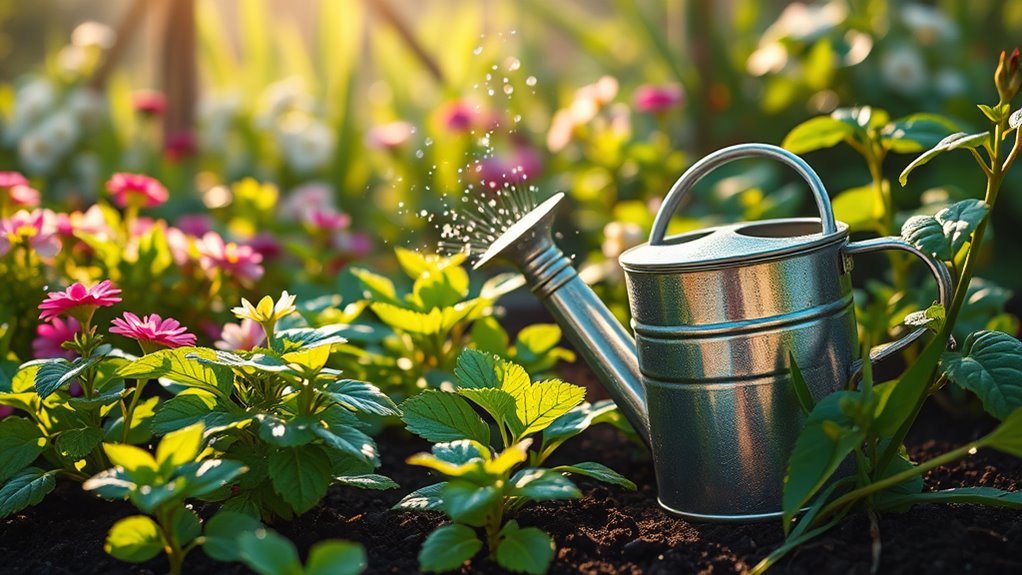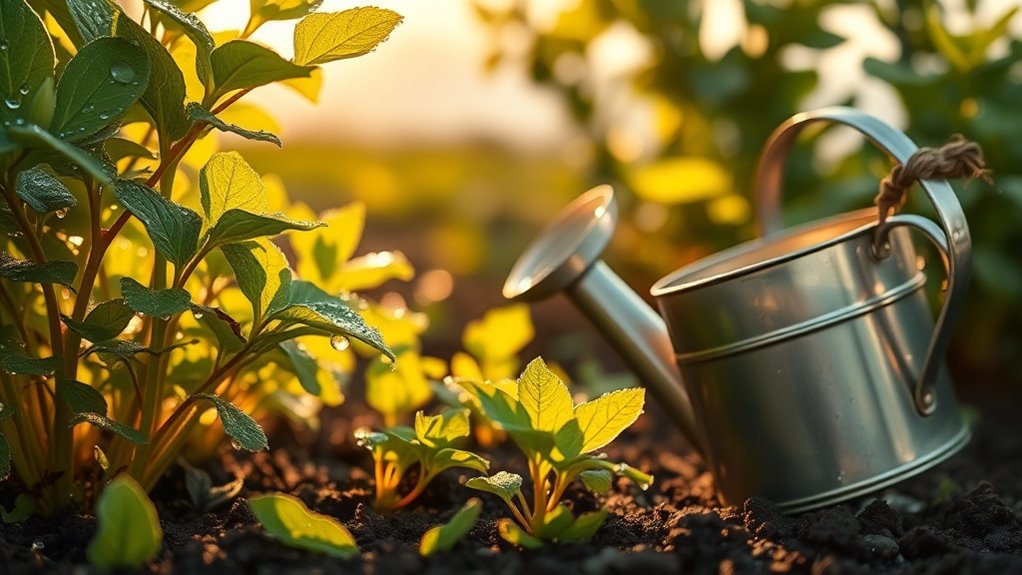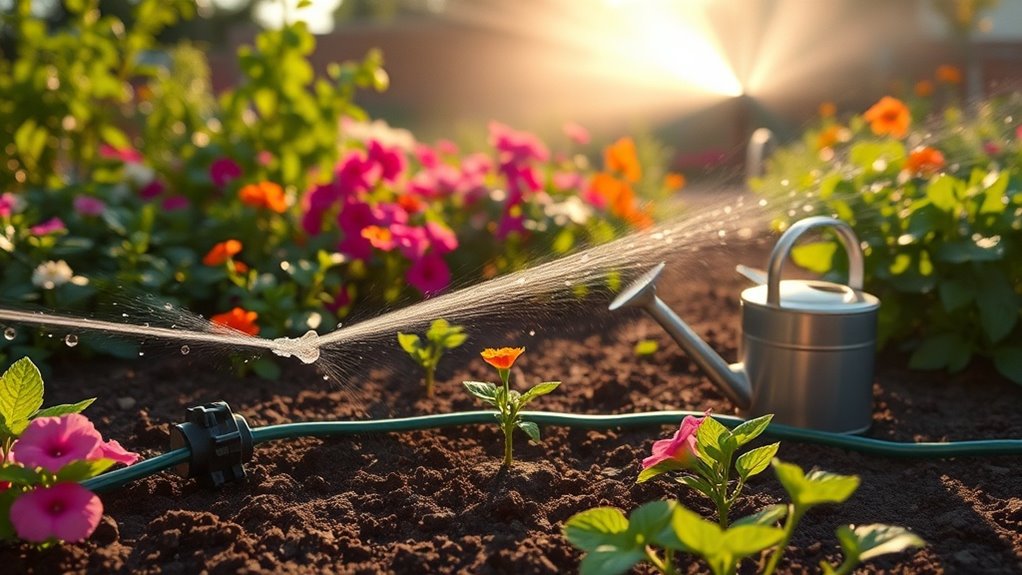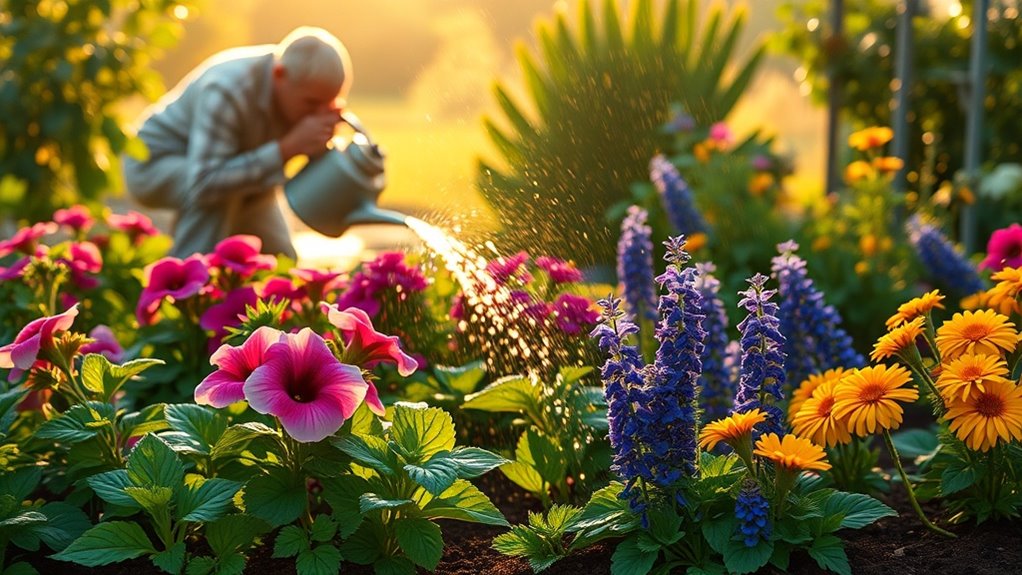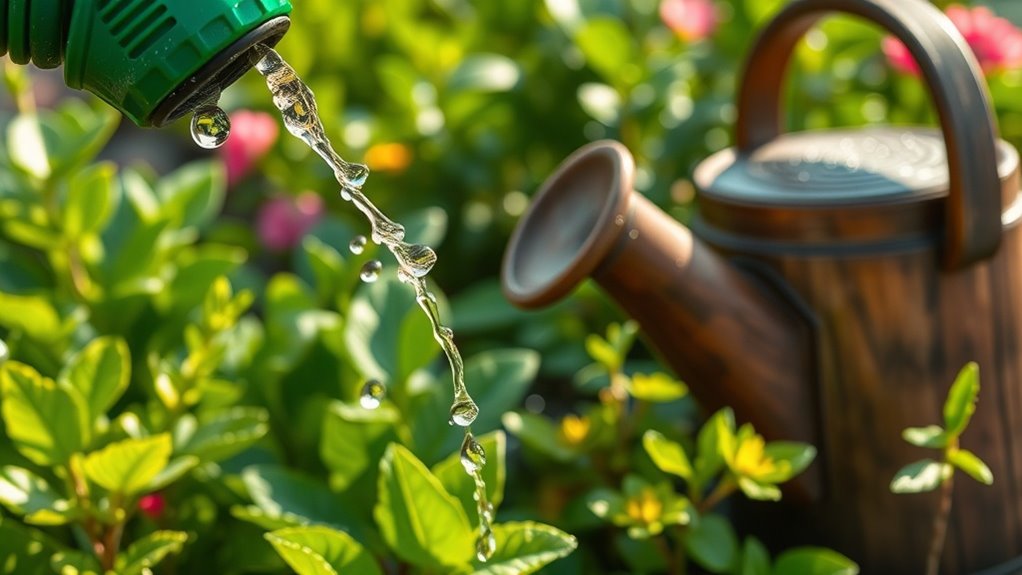Best Time to Water Your Plants. It’s Not What You Think!
The best time to water your plants is early morning. This approach minimizes evaporation, allowing moisture to reach the roots effectively. Plus, it helps foliage dry quickly, reducing the risk of fungal diseases. Contrary to popular belief, evening watering can lead to prolonged leaf wetness, which promotes mildew. Remember, your plants’ needs change with the seasons, and adjusting your watering routine accordingly is essential. Stick around to discover more about optimizing your plant care practices!
Understanding Plant Water Needs
How do you know when your plants need water?
One key indicator is the soil’s moisture level.
Stick your finger into the soil about an inch deep; if it feels dry, it’s time to water.
Another sign is the appearance of your plants—droopy leaves or brown tips often indicate dehydration.
Use these watering tips: water early in the morning or late in the evening to minimize evaporation, and make sure your pots have drainage holes to prevent waterlogging.
Remember, different plants have unique needs, so observe them closely to establish a consistent watering routine.
Additionally, understanding optimal watering techniques can further enhance your plants’ health and resilience.
Adjust based on environmental conditions and plant growth stages.
Common Misconceptions About Watering
When should you believe common myths about watering your plants?
You shouldn’t.
Many assume that watering in the evening prevents evaporation, but this can lead to fungal diseases.
Others think all plants need daily watering, when in fact, many thrive with less frequent soaking.
The myth that rainwater is always superior overlooks the fact that tap water often contains beneficial nutrients.
It’s also a misconception that wilting always means a plant needs water; overwatering can cause similar symptoms.
Recognizing these misconceptions helps you make informed decisions and ultimately supports healthier plants.
Always prioritize understanding your specific plant’s needs. Additionally, avoiding overwatering is crucial for maintaining the overall health of your plants.
Early Morning vs. Evening Watering
Understanding the right time to water your plants can greatly influence their health and growth. Early morning watering allows plants to absorb moisture before the heat of the day, reducing evaporation and ensuring more water reaches the roots. This timing also helps prevent fungal diseases, as foliage dries quickly with morning sun. Additionally, effective watering timing can significantly optimize irrigation practices, leading to healthier gardens.
Conversely, evening watering can lead to prolonged leaf wetness, increasing the risk of mildew and rot. If you must water in the evening, aim for the base of the plants to minimize leaf contact.
Ultimately, early morning is generally the best choice for ideal plant health and hydration.
Seasonal Considerations for Watering
As the seasons change, so do the watering needs of your plants.
In spring, as temperatures rise and growth accelerates, you’ll need to increase your watering frequency.
Summer’s heat can lead to faster evaporation, so monitor soil moisture closely.
During fall, many plants begin to enter dormancy, requiring less water; adjust accordingly to prevent root rot.
In winter, most plants need minimal watering, as lower light levels slow their growth.
Always consider your plant species and local climate conditions, as these factors can greatly influence how much and how often you should water throughout the year. Additionally, adjusting your watering schedule can lead to surprising benefits for plant health and growth.
Tips for Efficient Watering Practices
How can you make sure your plants receive the right amount of water without waste?
Start by watering early in the morning or late in the afternoon to minimize evaporation.
Use a soaker hose or drip irrigation system to deliver water directly to the roots, reducing runoff.
Monitor soil moisture with a moisture meter or by checking the top inch of soil; water only when it feels dry.
Consider mulching around your plants to retain moisture and regulate soil temperature.
Finally, adjust your watering schedule according to seasonal changes and rainfall to guarantee your plants thrive efficiently. Additionally, implementing smart watering techniques can further enhance your garden’s health and productivity.

